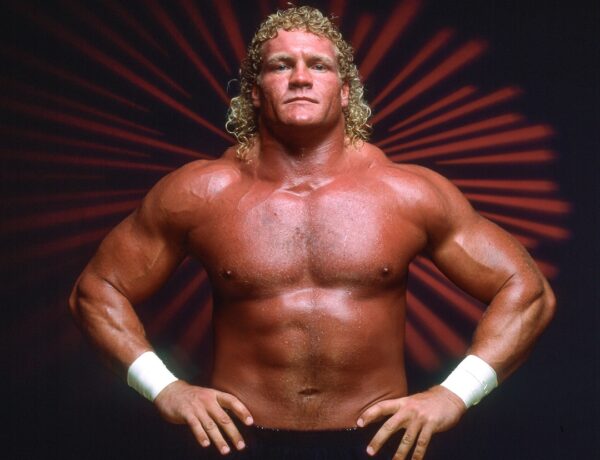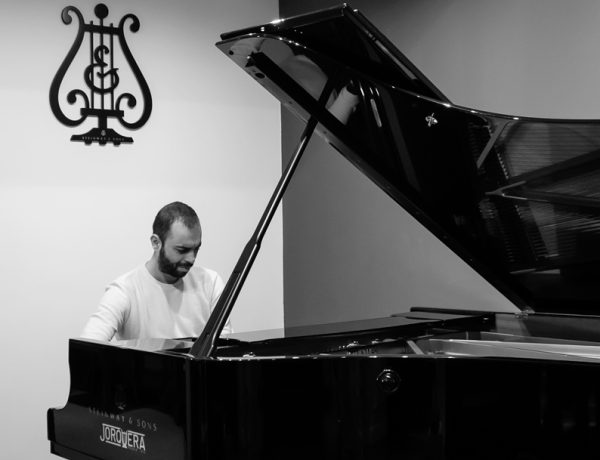As Baby opens, the title character, whose given name is Wellington, has a taste of freedom for the first time in nearly two years. He’s ending his stint in a youth detention center, a place with the grim industrial aura of a high-security prison — but also one where there are occasional breaks for drum-and-brass musical performances. Freedom presents particular challenges for Wellington, who discovers upon return to his working-class São Paulo neighborhood that his parents have left the city. There’s no forwarding address. Stepping into the void is a man more than twice his age, offering a confusing tangle of care and possessiveness as lover, mentor, business partner and paternal protector.
Exploring the twisty, aching complexities of the men’s relationship and the demimonde they inhabit, writer-director Marcelo Caetano (Body Electric), who served as casting director on Kleber Mendonça Filho’s Bacurau and Aquarius, has drawn compelling performances from his two leads. He imbues the story with a documentary immediacy, particularly in the supple, dynamic work on the streets of downtown São Paulo by DPs Joana Luz and Pedro Sotero, using hidden cameras and zoom lenses. Baby is, even at its most down-and-out, bursting with life. Through all the grit and transactional sex, though, the core of the movie is a tender and sentimental compassion.
Baby
The Bottom Line
Streetwise and full of heart.
Venue: Cannes Film Festival (Critics’ Week)
Cast: João Pedro Mariano, Ricardo Teodoro, Ana Flavia Cavalcanti, Bruna Linzmeyer, Luiz Bertazzo
Director: Marcelo Caetano
Screenwriters: Marcelo Caetano, Gabriel Domingues
1 hour 47 minutes
Cut loose by his parents — a policeman who never accepted him because he’s gay, and a hairdresser mom whom Wellington (newcomer João Pedro Mariano) is determined to find — the 18-year-old reconnects with his street friends, a ragtag queer crew who, for unspoken reasons that surely involve rejection or danger, are on their own. They vogue and hustle in the park, cheering one another on, watching each other’s backs. On his first night back, Wellington, with his easy smile and attentive gaze, joins them on a rambunctious visit to a gay porn theater for a bit of larceny. When he encounters the handsome Ronaldo (Ricardo Teodoro), Wellington doesn’t at first understand that the man is working. He hasn’t the cash to spend time with the soft-spoken 42-year-old, but when Ronaldo finds Wellington alone at the end of the night, he buys him a meal and offers him a place to sleep.
And though the sexual spark is undeniable, sleep is what they do that first night. In a perverse big brotherly way, Ronaldo urges Wellington to start selling his body. He teaches him boxing moves, negotiation tactics and other tools of survival, and takes his protégé to a bathhouse where Wellington, keenly aware of his appeal to older men — and spinning off earlier comments from Ronaldo — dubs himself Baby.
Ronaldo boasts of “high-end clients,” but his battered walk-up apartment tells a different story, as does the precariousness of his business selling drugs to random people on the street. Still, he provides financial and emotional support to his 13-year-old son, Allan (Victor Hugo Martins), who’s being raised in relative comfort by Ronaldo’s former partner, Priscila (Ana Flavia Cavalcanti), and her wife, Jana (Bruna Linzmeyer).
The idea of family is at the core of the screenplay by Caetano and Gabriel Domingues. And it takes many forms: the pact among the dauntless street kids (Patrick Coelho, Kyra Reis, Baco Pereira); the circle of loving cooperation around Ronaldo’s son; the broken promise that has left Baby looking for his mother; and the confused bond between Baby and Ronaldo.
When Ronaldo says, “He’s with me,” the lines could not be more blurred. And when Baby breaks away from his protective/domineering clutches, it’s to be coddled by another older man, Alexandre (Marcelo Varzea). “Your generation is much luckier,” he tells Baby, a paradox given Alexandre’s wealth and luxurious lifestyle. Caetano and Domingues are delving into the social expectations that kept Alexandre and countless men of his age in the closet for many years. It’s a profound point that makes the character sympathetic, for a while — until his ultimate rejection of Baby reveals his hideous class prejudices.
The screenplay offers screw-tightening elements of peril and tension, notably in the form of Ronaldo’s malevolent drug supplier, Torres (Luiz Bertazzo). But it’s deeper matters of loyalty and forgiveness that propel the story. These are neither forced nor easily resolved, the shifting moods and pressing questions echoed in the score, by Bruno Prado and Caê Rolfsen, that moves from percussive to modern choral to lush and swoony.
Embodying resilience with a bracing sweetness, Mariano is superb as a teen who has no choice but to grow up fast. As the man who takes Baby into his life and struggles to let go, Teodoro, an experienced stage actor, offers a riveting portrait of contradictions, Ronaldo’s gentleness and vulnerability brought home in the vision of Allan holding his weeping father. Another nearly wordless scene, involving Baby’s mother (Kelly Campelo), is equally potent, and the movie’s final sequence is wrenching in its understated emotion. Full of tough and messy truths, Baby is a story of broken but healing hearts.





